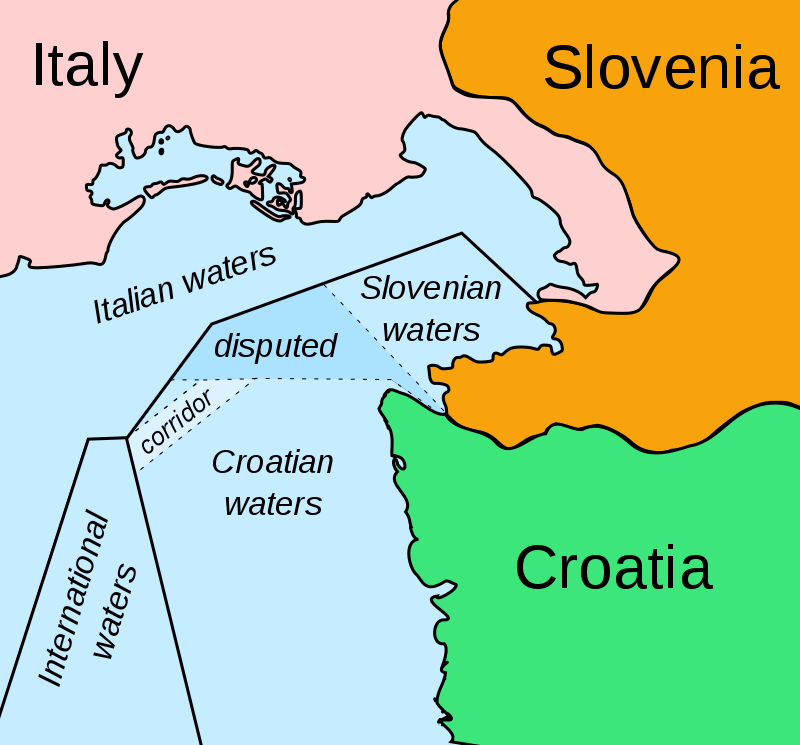Croatian Prime Minister Discounts Slovenia’s Schengen Challenge
The disputed maritime territory (Wikipedia)
Croatian Prime Minister Andrej Plenkovic told reporters on September 27 that he does not believe Croatia’s border dispute with Slovenia will bar his country from joining the Schengen Zone.
“They can't block indefinitely,” Plenkovic said in response to Slovenian Foreign Minister Miro Cerar’s implication that Croatia will only be permitted to join the Schengen Zone if it settles its border dispute with Slovenia.
The border conflict, which originated from the dissolution of Yugoslavia in 1991, concerns a patch of ocean in the Northern Adriatic that would provide Slovenia access to international waters. An arbitration tribunal came to a final decision regarding the location of the maritime border in 2017, but after details of a discussion between Slovenian officials concerning the confidential proceedings of the tribunal came to light, Croatia removed itself from the arbitration process and refused to submit to the decision’s terms.
As the European Union’s most recently added member state, Croatia is one of just four countries still awaiting permission to join the Schengen Area, the border control zone within which people travel freely without a passport. The president of the European Commission has guaranteed that Croatia will be designated compliant with the criteria for Schengen entry in October. However, before Croatia can join, all 26 member states must agree to allow its entry.
Croatia’s state secretary to the Interior Ministry explained Schengen’s allure for the Balkan nation, saying that in addition to increased security, the tourism gained from removing border controls will boost the country’s economy.
Slovenia also has something to gain from Croatia’s entry in the zone. Currently, Slovenia lies on the outside border of the Schengen Area, requiring Slovenia to control entry into and out of the zone at its border with Croatia. However, Croatia’s induction would relieve Slovenia of the responsibility by moving the area’s border eastward.
Slovenian Foreign Minister Cerar claimed that his nation supports the expansion of Schengen but referenced the border dispute, saying, “The rule of law is one of the key standards that states intending to enter the Schengen agreement, have to abide by. And that includes respecting and enforcing international agreements and decisions of international courts.”
While Slovenia on its own may not present a significant threat to Croatia’s Schengen hopes, more powerful members Germany, France, and the Netherlands also reportedly oppose Croatia’s entrance, at least until the conclusion of Schengen reforms that are currently underway.
Another barrier arises with the sequence of EU Council leadership, which changes between member nations every six months. Next in line to chair is Croatia, which is not permitted to bring up the issue of its own Schengen entry while it is in charge. Then comes Germany and Portugal, two countries that are reportedly unlikely to raise the issue. Slovenia will lead the Council after that, leaving a bleak outlook for Croatia unless it can resolve the border dispute.
All things considered, experts predict that it will be at least two years before Croatia has a serious shot at joining. Plenkovic admitted, “In this context, it's difficult for me or anyone else to be able to give a date.”

